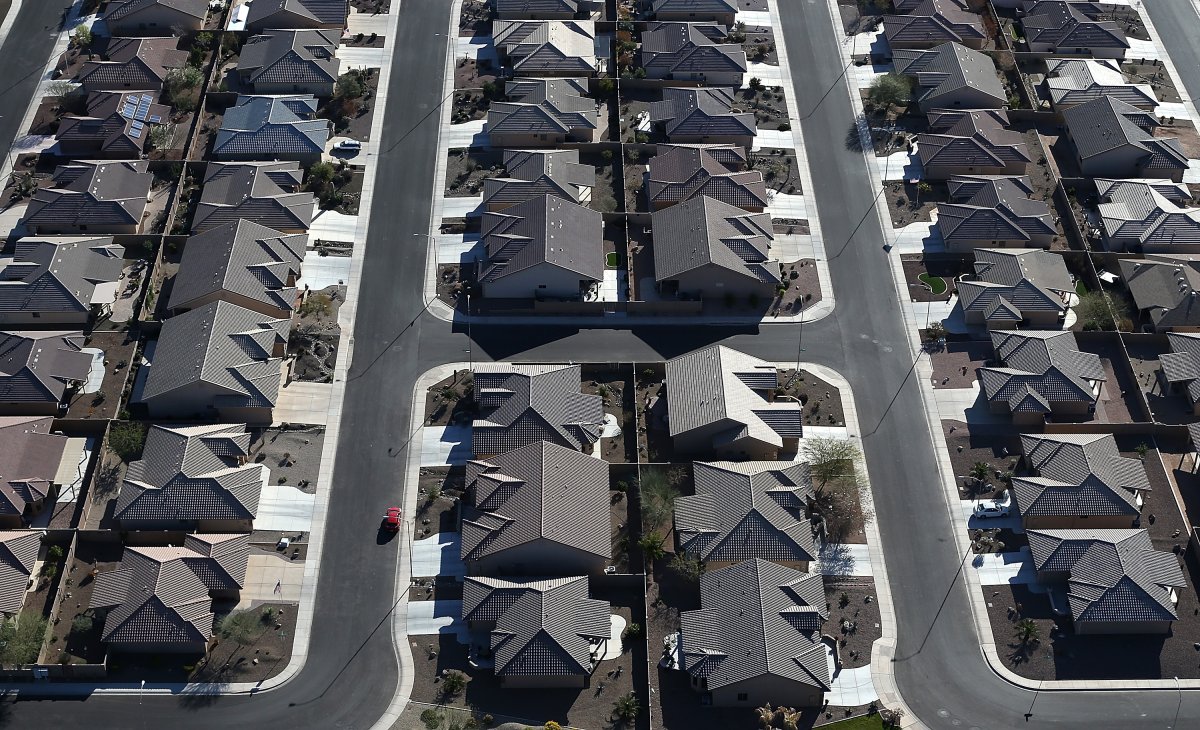A plunge in home sales in Phoenix, Arizona, in the past three years is a sign that the country is facing a "real-estate sales recession," according to independent real-estate analyst and former agent John Wake.
In a post published on X, formerly known as Twitter, Wake shared recent data for single-family home sales in Phoenix, which he said were down by 40 percent from 2021. "It's safe to say we're in a real estate sales recession," Wake said, commenting on the data. Newsweek contacted Wake by email for comment early on Monday.
Crash in Phoenix single-family home sales.
— John Wake (@JohnWake) February 4, 2024
Down 40% from 2021.
It's safe to say we're in a real estate sales recession. pic.twitter.com/v9FYqubqwW
After booming for two years during the pandemic, the U.S. housing market experienced a significant price correction between late summer 2022 and spring 2023. Higher mortgage rates—which last year reached two-decade highs—caused demand to plummet and prices to slide across the country, something that led some to say that the housing market is in a bubble that would eventually burst, triggering a crash.
Wake's conclusion was based on data derived from residential deeds recorded by Maricopa and Pinal Counties updated to December 2023 and compiled by Cromford Associates LLC. Annual home sales for single-family homes in Phoenix were 125,392 in 2021 and dropped to 97,924 in 2022 and 75,649 in 2023.
"Huge downside risk for real estate prices IF the overall U.S. economy also goes into recession," wrote Wake on the social-media platform. "Fortunately, a 'soft landing' is looking more and more likely for the overall U.S. economy," he added on X.
Data from real-estate marketplace Zillow shows the average home value in Phoenix was $414,076 as of December 31, down 0.1 percent over the past year.
However, other analysts disagree with the interpretation of the home sales data.
"We don't see the Phoenix-area real market headed into a recession," Sheryl Bowden, president of the Board of Directors of Phoenix REALTORS®, told Newsweek. "News of this nature is being sensationalized a bit, as there are many factors impacting the market data. For instance, rising interest rates have had a huge impact, and builders have underbuilt the past decade.
"Currently, the vast majority of homeowners have interest rates of 6 percent or less, which has created the 'lock-in effect.' Since the beginning of the year, the market has pivoted, and pending sales have increased.
"This could be a sign that homebuyers are adjusting to the new norm with higher interest rates. Further, the Phoenix-area experienced a seasonality return to our market last year. We haven't seen a seasonal market for the past three years."
The National Association of Realtors (NAR) said that existing-home sales were down 1 percent in December 2023, compared to a month before, to a seasonally adjusted rate of 3.78 million. Sales dropped by 6.2 compared to the previous year, while the median existing-home sales price rose 4.4 percent from December 2022 to $382,600. It was the sixth consecutive month of year-on-year increases.
On an annual basis, existing-home sales fell to the lowest level in nearly 30 years, while the median price reached a record high of $389,800 in 2023.

Single-family home sales were down 0.3 percent in December compared to the previous month and 6.1 percent from the previous year. The median existing single-family home price was $387,000 in December, up 4 percent from the previous year.
"The latest month's sales look to be the bottom before inevitably turning higher in the new year," said NAR Chief Economist Lawrence Yun. "Mortgage rates are meaningfully lower compared to just two months ago, and more inventory is expected to appear on the market in upcoming months."
"Homebuilders charged less for houses in 2023 than in 2022—and ended up selling more houses," said Holden Lewis, home expert at American personal finance company NerdWallet. "It's remarkable that the median price of a new home was $30,400 lower in 2023 than the year before, even as inflation was on everyone's mind.
"The lower prices are builders' response to high mortgage rates. There's still a severe housing shortage in this country, so let's hope builders keep selling houses at prices that middle-class consumers can afford," Lewis added.
Update, 2/6/24 10:38 a.m. ET: This article was updated to include comment from Sheryl Bowden.
Uncommon Knowledge
Newsweek is committed to challenging conventional wisdom and finding connections in the search for common ground.
Newsweek is committed to challenging conventional wisdom and finding connections in the search for common ground.
About the writer
Giulia Carbonaro is a Newsweek Reporter based in London, U.K. Her focus is on U.S. and European politics, global affairs ... Read more
To read how Newsweek uses AI as a newsroom tool, Click here.








